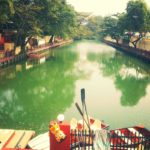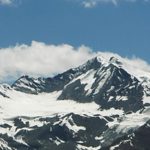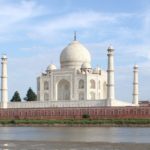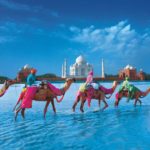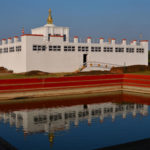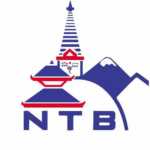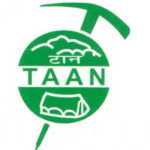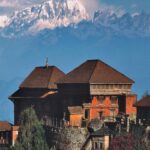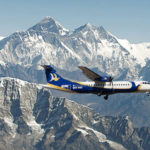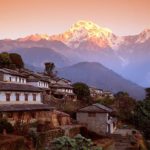Hotels
We partner with reputed hotels only.
Our Partner for 5 Star Hotels are: Hilton, Taj, Oberoi, Hyatt, Le-Meridien, The Lalit, The Park, Mansingh, Clarks, and Radisson
Payment
Pay Securely by Card
E-Payment Advance Booking (USD 100)
Bank Wire Transfer
Nepal SBI Bank (Transfer from State Bank of India by using Indo- Nepal Remit form) - NO GST CHARGE
Bank: Nepal SBI Bank Limited
Bank Address: Commercial Branch, Lainchaur-29, Kathmandu, Nepal
Account Name: Kailash Journeys Pvt. Ltd.
Account Address: Lazimpat-2, Uttardhoka, Kathmandu, Nepal.
Account No. 22525240200227
Swift code: NSBINPKA
India Bank Account - 5% GST Extra
Bank: HDFC Bank
Account Name: Kailash Journeys
Account No. :50200035661965
IFSC Code: HDFC0000129
Swift code: HDFCINBB
Address: PLOT NO. 28,BLOCK B,COMMUNITY CENTRE ,JANAKPURI, NEW DELHI - 110058
Credit Card
E-Payment LinkVehicles / Transportation
The Cars, Tempo Traveler or Coach will be arranged according to the size of the group.
Private cars: Indigo; Innova ; Dezire ; Etios; Honda City or similar.
In some part of India Scorpio, Qualish or similar would be available.
Deluxe Category cars such as Mercede, Duster, or similar.
Airport Information
Should I fly into Delhi a day early to give myself time to rest and adjust to the jet lag?
Whether you fly in early is entirely up to you, though if you choose to do so, we can make early arrival arrangements with our hotel for you and make sure you have an airport pickup. It’s a long flight to India, and a day of rest can be a great way to make sure you’re in good shape for the tour.Which airport should I fly into in Delhi?
Indira Gandhi AirportIndia Weather / Best Time to Visit
India has a vast range of climatic conditions from tropical in the south to alpine in the north. Most of the country outside the Himalaya region is at its best for travel between October and March. At this time, days are mild to warm, nights comfortable and rain (expect in the south east) is very rare. From April onwards the humidity level rises with the temperatures and with the onset of the monsoon in June travel can be difficult in places. The advantages of travel outside the peak season are reduced tariffs, and fewer tourists. At virtually any time of the year, some part of India or other will be suitable to visit.
Visa / Passport / Safety
What are the Visa requirements to travel to India?
India visas are available from Indian Consular Offices around the world, on payment of visa fee. All foreign citizens have to pay visa fee. Applications for multiple and single entry visas are accepted. Indian visas are necessary for all foreigners visiting India. There are several kinds of visas including Entry Visa, Tourist Visa, Business Visa, Long terms visa (upto 5 years with multiple entry facilities) etc. are available. Also Collective Landing Permits are available for foreign tourists in groups. Visa extensions: Tourists visas are available for a maximum period of 180 days. No charges are levied for visa extension within the maximum period of 180 days. Identical passport photographs are required. However, in case of an extension beyond 180 days, which is allowed only in exceptional cases, an extension fee is charged. Tourists from other countries are advised to check current applicable visa fee/visa extension fees with government of India Tourist Offices or Indian Consular Offices located in their respective countries. For further details please go through visa formalities page.
What are the safety regulations to be followed while in India?
India is as safe as any other country you visit for the first time. If you adhere to the following suggestions, you will have a safer and more enjoyable visit to India.
– On your point of entry to India and at any next town, always have somebody escort you to your Hotel / Apartment. Ensure at least for the first leg that you have your accommodation and transportation booked well in advance to save from further hassles. Since Indian’s have more immunity than most westerners, drink only Mineral Water, avoid raw foods / salads, eat only cooked food in good Hotels / Restaurants, and always avoid road side exposed eatables. Be sensitive to Indian culture and dress appropriately while travelling within the country.For more India Visa Guidelines Visit: http://indianvisaonline.gov.in/visa/
Money / Currency
India’s currency is the Rupee (Rs.) One Rupee is equal to 100 Paise. Coins are in denominations of l, 2 ; 5 & 10 Rupees. Notes are in denominations of Rs. 5, 10, 20, 50, 100, 500 and 1000.
How much money should I bring with me?
This is a tough question as everyone’s spending habits are different and much of the tour is covered in the cost of the trip. Having said that, you’ll want to factor in the cost of souvenirs, drinks, extra food items and any additional things you might want to do during the trip. For a two-week trip in India, you might carry $500 cash and both a credit and debit card. You’ll likely come home with money, but it’s best to be prepared.
What extra costs will I incur while I am in India?
We try to make our tour prices as ‘inclusive’ as possible so you will not be surprised with extra ‘hidden’ costs as you go along. A meal can cost anything from Rs50 in a roadside eatery to Rs1,500+ in a luxury hotel. How much you will spend depends on your own tastes of course, but if you allow Rs150 per person for lunches and Rs300 for dinners you will eat very well. Shopping in India is legendary and with good reason. Beautiful and unique handicrafts and art works can be purchased from a few hundred rupees upwards, with virtually no upper limit provided you are willing to pay for items to be shipped back to your home address.
Do we tip our guides and driver?
Indeed, it’s common to provide a tip to the guides and driver. You’ll have a guide at each destination – someone who knows the area well. Plan to tip about $5-7/day for these guides and then plan on tipping the driver about $3-5/day. US dollars or rupees will be fine.
Group Size
How many people in each group?
- Minimum 2 persons are required. The price range may change according to the group size.
Can we have our own Departure Date and Group?
- Yes, you can pick your own departure date.
Restricted Area in India
Which are restricted areas in the India which need special permits?
A. The Foreigners (Protected Areas) Order 1958 states that a Protected Area Permit (PAP) is required for non-Indian citizens to visit certain areas in India (mainly in the North-East). Certain requirements have to be fulfilled in order to get this permit. Indian citizens who are not resident in these areas need an Inner Line Permit (ILP) to enter these places. The Inner Line Permit is significantly easier to get.
In addition, the Foreigners (Restricted Areas) Order 1968 states that a Restricted Area Permit (RAP) is required for non-Indians to visit certain areas in India. As of 2009, RAP are required for all visits to the Union Territory of the Andaman and Nicobar Islands and parts of the state of Sikkim. Unlike PAP, RAP are generally available for individual travellers and can be issued by overseas embassies or even, in some cases such as Port Blair’s Vir Savarkar Airport, on the spot. Indian citizens do not need special permission to visit Restricted Areas.
General Protected Area Permit requirements
-
Tourists have to travel in groups of at least 4
-
They have to travel with a registered travel agent
-
In some areas only certain entry/exit points are allowed. In certain areas non-Indians cannot enter at all
-
Citizens of Pakistan, Bangladesh, China and Myanmar can get the PAP only with approval of the Ministry of Home Affairs
Normally the PAP has a duration of 10 days, with the option of extending for another 7 days. The PAP is issued by the Ministry of Home Affairs. However, the different authorities of the concerned Indian provinces can also issue the PAP, and also the Indian missions abroad. Normally the travel agent will take care of getting the PAP for the tourists.
Areas for which a PAP is required
-
Parts of Jammu & Kashmir
-
Parts of Himachal Pradesh
-
Parts of Uttarakhand
-
All of Arunachal Pradesh
-
All of Manipur (suspended since 1 January 2010)
-
All of Mizoram
Areas for which a RAP is required
-
All of Andaman and Nicobar
-
Parts of Sikkim
Areas for which the PAP requirement was lifted
-
Assam
-
Meghalaya
- Tripura
-
Food
Is all Indian food very spicy?
No. India is justly famous for some of the world’s best food and here you can enjoy it in all its glory. Food hygiene standards in hotels and resorts are now near world class and a few sensible precautions will minimise any chance of getting sick. As you travel around you can safely eat at small local restaurants along the way. If you wish to eat Chinese or Continental style cuisine, this is available at mid range to deluxe hotels throughout the country.
TERMS and CONDITIONS
Please note that in case of cancellation of a package tour provided by us i.e. “Kailash Journeys”, we will deduct:
- 10 % for cancellations made after the booking.
- 25 % for cancellations made 1 month prior to arrival.
- 35 % for cancellations made 2 weeks prior to arrival.
- 50 % for cancellations made less than 2 weeks prior to arrival.
- 100% cancellations made less than 1 week prior to arrival.
- In case of Closed Group bookings a maximum of 15 % reduction of strength is allowed without any cancellation charges unless non refundable deposits to suppliers are involved. Please check with us at the time of making the reservation.
- Cancellation policy depends upon size of group booking and booked hotel’s cancellation policy
More FAQ
Can you recommend what ground transportation I should use to get to the hotel from the airport?
You will be picked up from the airport by a driver/guide assigned by our company. Look for your name on a placard.How should I pay for the taxi fare if I’ve just arrived at the airport?
As noted above, this will be handled on our end. However, if for some reason, you can’t find the assigned driver, a taxi driver will take US dollars or you can use the ATM machine or an money exchange booth inside the airport to get rupees.Is there a schedule for installment payments?
We don’t have anything formal set up – people set their own schedules, sometimes once a month, sometimes once every couple of months, since it depends on when they’ve registered and how much they want to send per installment.Do I need any special medications or a first aid kit?
If you are pre-disposed to anything (lactose intolerant or you have a sensitive stomach) you may want to bring something for these. Medicine is widely available throughout India so if you forget something it’s likely that you can pick it up at a pharmacy.
Top Nepal Tour Operator - Serving Since 1995
India Travel FAQs
Call / WhatsApp: +91-8377929897india@kailashjourneys.com
INDIA TOUR RESOURCES
Popular India Packages
Kerala Tour Package (5N/6D)
5N / 6D (KJ06-CMTA)
North India Tour Package (7N / 8D)
7N / 8D (KJ08-DSMDC)
Delhi & Taj Mahal Tour (3N / 4D)
3N / 4D (KJ04-DA)
Golden Triangle Tour (5N / 6D)
5N / 6D (KJ06-DAJ)
Discover Rajasthan Tour Package (16 Days)
15 Nights / 16 Days (ITP-02)
Buddhist Tour Package India & Nepal (17 Days)
16 Nights / 17 Days (ITP-03)
Our Office
Nepal Head Office
Kailash Journeys Pvt. Ltd.
Thamel, Kathmandu 44600, Nepal
+977-9801100366 | India +91-8377929897
support@KailashJourneys.com
India Contact
Shivendra Mishra
India +91-8377929897
India +91-8377929897
ACTIVE MEMBERS OF
Popular Packages
Pokhara & Gorkha Tour Package (6N/7D)
6 Nights / 7 Days
Best of Nepal Tour Package 9 Days
8 Nights / 9 Days
Copyright © 1995 - 2024 All Right Reserved, Kailash Journeys (P) Ltd. | Kailash Journeys India | Privacy Policy

